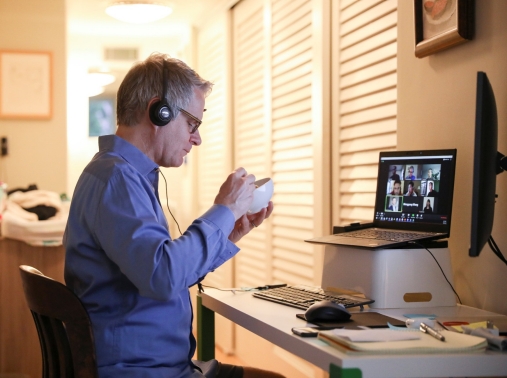|
|
RAND research and commentary on the issues that matter most
|
June 18, 2020
|
|
|
|
|
Photo by Brendan McDermid/Reuters
|
|
|
|
After the killing of George Floyd by police and the wave of protests around the world that followed, lawmakers in the United States are facing urgent calls to reform policing. In a new Q&A, four RAND researchers discuss what we know about the effectiveness of proposed policy changes, such as banning chokeholds and mandating body cameras; how some social problems could be handled by agencies other than law enforcement; what “defund the police” means; and much more. Read more »
|

|
|
Photo by malerapaso/Getty Images
|
|
Facial recognition software has become a new target in the fight against racism and police brutality. Recent bans of this technology purport to address race and gender bias. But RAND experts warn that bans won't repair the underlying dilemma: the imbalance of power between citizens and law enforcement. Stronger governance of facial recognition may be a better way to defend against its improper use and hold law enforcement accountable.
Read more »
|
|

|
|
Photo by victorass88/Getty Images
|
|
States with the most-restrictive combination of three common gun policies—child access prevention laws, right-to-carry laws, and stand-your-ground laws—are estimated to have 11 percent fewer firearm deaths than states with the least-restrictive combination of these policies. That's according to a new RAND study. Nationwide, this corresponds to 4,475 fewer firearm deaths per year. These findings are the latest from RAND's Gun Policy in America initiative, which seeks to support the development of fair and effective gun policies.
Read more »
|
|

|
|
Doug Hassebroek eats breakfast while on a video conference call at his home in Brooklyn, April 24, 2020. Photo by Caitlin Ochs/Reuters
|
|
Results from a nationally representative RAND survey provide some insights into how the pandemic has affected America's workers. Between February and May, one in six workers lost their jobs. Most were either laid off or were unable to work because of coronavirus restrictions. Others faced health risks or childcare demands. On the flip side, the ability to work from home has helped protect many jobs. But of course not all jobs are conducive to telecommuting.
Read more »
|
|

|
|
Photo by tuachanwatthana/Getty Images
|
|
Many health systems have been working with no established guidance for allocating scarce but lifesaving resources. These include ventilators for COVID-19 patients and personal protective equipment for health care and long-term care workers. RAND researchers have created a rapid response checklist to help health care decisionmakers and state policymakers navigate this difficult situation. The checklist was developed with input from clinicians, health system leaders, and bioethicists, as well as patients, family members, and members of communities disproportionately affected by the pandemic.
Read more »
|
|

|
|
Photo by kate_sept2004/Getty Images
|
|
Being a working parent—particularly a working mother—is hard. And during the pandemic, it's become even harder. Working moms have had to reconfigure their lives, often taking on full-time childcare and homeschooling duties. Mothers also continue to face biased assumptions that they're less productive than their working-father counterparts. According to RAND experts, the squeeze on working moms is taking a toll, and it may only cascade from here. This could lead to devastating career consequences.
Read more »
|
|
|
You already get the latest insights from RAND in your inbox. Why not your earbuds?
Policy Currents is available as a weekly podcast. Five minutes, every Friday.
Subscribe now »
|
|
|
|
|